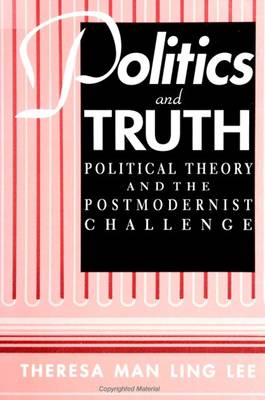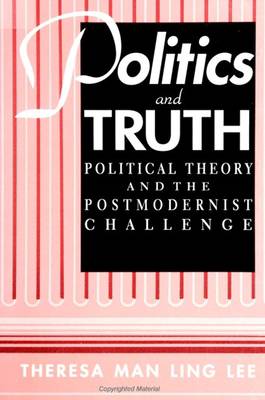
- Retrait gratuit dans votre magasin Club
- 7.000.000 titres dans notre catalogue
- Payer en toute sécurité
- Toujours un magasin près de chez vous
- Retrait gratuit dans votre magasin Club
- 7.000.0000 titres dans notre catalogue
- Payer en toute sécurité
- Toujours un magasin près de chez vous
Description
Considers the contested concept of truth in contemporary politics in light of the postmodernist challenge to Enlightenment ideals and examines the treatment of truth in an unusual lineup of thinkers ranging from Plato and Hobbes to Weber, Foucault, and Arendt.
The political momentum gathered by the postmodernist challenge to Enlightenment ideals has made the notion of truth more central than ever in politics. Postmodernism maintains that the philosophical validation of ideas by way of truth is intrinsically linked to the legitimation of power. In this political context Lee considers a series of related questions. Why does it matter politically how truth is validated? Does the claim to having truth necessarily imply a certain claim to authority by those who possess truth? Is truth therefore power? Is a foundationalist notion of truth antidemocratic by implication? Is a contextualist notion necessarily democratic, as the postmodernists suggest?
Politics and Truth examines the treatment of these problems in the work of thinkers ranging from Plato and Hobbes to Weber, Foucault, and Arendt. The book concludes with a consideration of ideology in post-Mao China that shows the elusive if not illusory openness of contextualism.
Spécifications
Parties prenantes
- Auteur(s) :
- Editeur:
Contenu
- Nombre de pages :
- 243
- Langue:
- Anglais
- Collection :
Caractéristiques
- EAN:
- 9780791435045
- Date de parution :
- 28-08-97
- Format:
- Livre broché
- Format numérique:
- Trade paperback (VS)
- Dimensions :
- 150 mm x 228 mm
- Poids :
- 331 g

Les avis
Nous publions uniquement les avis qui respectent les conditions requises. Consultez nos conditions pour les avis.






